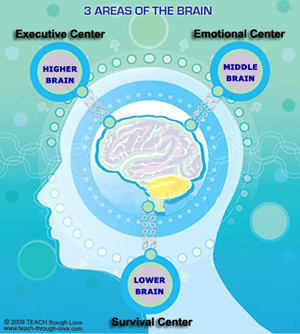Parenting - Discipline

Did you experience harsh or loving parenting? Discipline styles typically vary among generations and culture and it is important to recognize how our early experiences shaped our thoughts and actions today.
What kind of discipline you experience growing up?
How did it feel to live as part of your family?
What was the emotional set-point of your house?
Was there a lot of yelling and screaming?
Was there punishment, blame, shame, or guilt?
Did you feel loved, noticed, important or were you subjected to a constant stream of raised eyebrows and threats to your teen freedom? Maybe, when you think back on your childhood, you remember a bit of both. Have you ever wondered about the intentions of traditional parenting discipline?
Merriam-Webster's dictionary lists the definition of discipline as:
1. punishment
2. obsolete: instruction
3. a field of study
4. training that corrects, molds, or perfects the mental faculties or moral character
Why is punishment listed as the first definition and the Latin root meaning to teach has become obsolete?
I suspect that this description perfectly mirrors the traditional thinking about parenting and discipline. In an attempt to modify behavior and instill sound morals, generation after generation has passed down discipline layered with blame, shame, judgment and guilt.
A short-sighted cycle of punishments and rewards ensued, with parents rewarding children for their good behavior and alternately, taking away privileges, love, attention or cherished belongings when they fail to meet our expectations.
This philosophy of discipline has not taken us very far and science tells us that this kind of treatment has long-term implications on development.
We are only a shift in perspective away from the results we want - IF parents, teachers and caregivers could begin to re-associate the word discipline with its root: instruction, to teach.
We need to reimagine our relationships with our children and infuse our parenting and discipline strategies with empathy, tolerance, and with a focus on teaching skills - not stomping out behaviors we don't like.
Ultimately, we want to teach our children how to live in the world and how to relate authentically - to explore with caution but without fear, to be creative and compassionate, to learn appropriate emotional expression, and how to think for themselves. We cannot achieve this by ordering our children into compliance or forcing our will, determined to make them obey.
It is only through understanding, conscious communication, and strengthening the relationship that change will come.
So, why do we continually reduce our parenting to discipline techniques that control and manipulate unnecessarily?
Why do we constantly feel the need to evaluate children's behavior as good or bad?
I know you want to give your child the best opportunity to grow into a self-reliant, happy adult!
HOW? REMOVE your obstacles - they are named - blame, shame, judgment, and guilt!
The child, especially, learns to become the kind of
human being that he or she has experienced.
- Ashley Montagu
Old Parenting Paradigm vs. New Parenting Paradigm
There are core differences between the way the Old Parenting Paradigm (Traditional) views parenting discipline and the way the New Parenting Paradigm (Conscious) views it. It is necessary to explore these concepts in order to shift your thinking about child rearing. Read more >>
Child Development

The brain science surrounding child development has exploded in the last 20 years. It is almost impossible to continue perpetuating the negative cycles of the traditional paradigm once you understand how and why child act the way they do. Read more >>
Parenting Tools

The first question most parents ask after learning about Conscious Parenting is "Okay I get it, I'm on board, I want to be conscious - but HOW? What do I do now?" Read more >>
Redefining Discipline for Kids
Forcing children to obey our wishes or else face an unimaginable array of consequences or uncontrollable emotions WON'T work! Put cooperation ahead of control. Read more >>
What's My Parenting Style
Did you know that varying your parenting style can influence your experience and relationship with your child.What's Your Parenting Style?
- Take the QUIZ to find out!
- Find out how your parenting style may interfere with building a close relationship with your child.
What do you think? I love hearing from you, so leave me a comment below. Share your stories, post your challenges and if you benefited from this article, consider sharing it with a friend!

